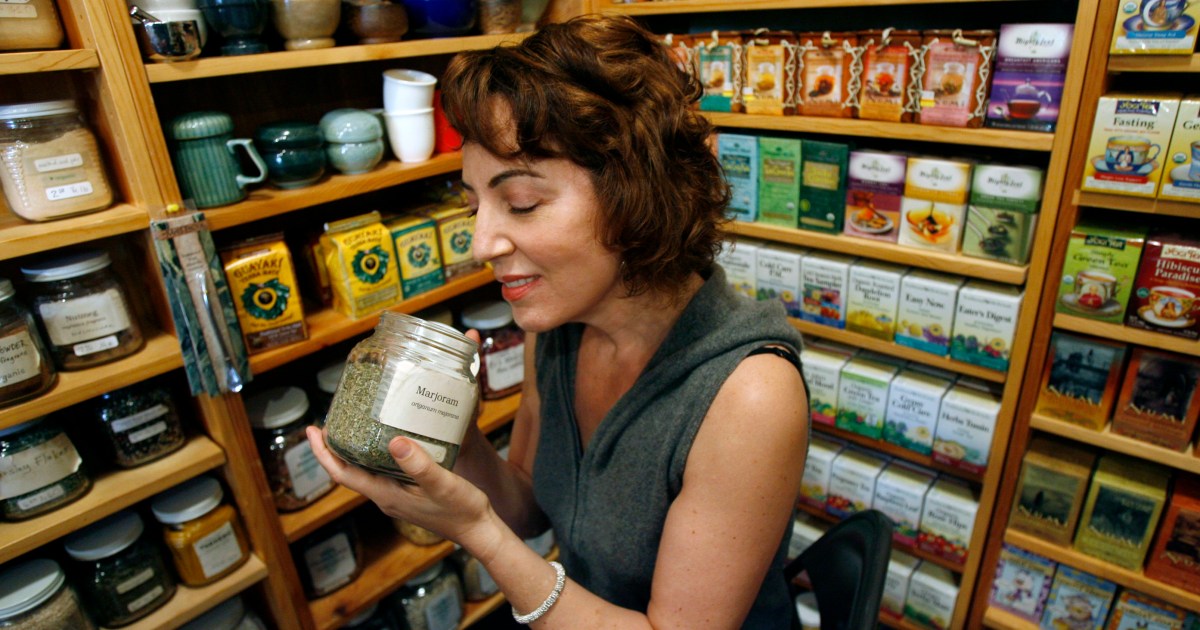Popular San Francisco Herb Shop Criticizes City’s Red Tape – The San Francisco Standard

The Scarlet Sage Herb Co., a nearly 30-year-old small business, has found itself on the verge of closure just three months after reopening in a new location in San Francisco’s Fillmore District.
According to owner Laura Ash, onerous city bureaucracy has dried up a key source of the business’ revenue: bulk dried herbs.
Earlier this month, the San Francisco Department of Public Health issued a cease-and-desist order to the store, prohibiting Scarlet Sage from selling herbs until it fulfills the requirements for a food permit.
Having joined the company as an employee in 2009, Ash took over as owner in 2015 and has operated Scarlet Sage since then. The store is known for its focus on wellness, holistic medicine and witchery. Think tarot cards, healing crystals and sacred talismans.
After a 28-year run on Valencia Street in the city’s Mission District, the store moved to its new location at 1903 Fillmore St. earlier this summer. Ash said a number of factors spurred her to relocate, including low foot traffic, increasing crime and difficulties renegotiating a lease with her landlord.
After a pricey build-out, Scarlet Sage opened its doors in July. Business in the new location was slowly picking up just as the store was hit with what Ash called “an existential threat.”
A Department of Public Health inspector visited the location in response to a complaint that scoops were being washed in the bathroom sink. Ash noted that the bathroom is currently the only source of running water available in the store, and the utensils were taken out to the herb table for further sanitizing and drying.
In Scarlet Sage’s previous location, a hand-washing sink outside the bathroom was used to clean utensils. Ash said the business was in the process of saving the funds necessary to add a similar appliance in the new location.
Ash said when she explained her situation, she was told to get an official food permit, the same as any restaurant, bar or bakery. That would require tens of thousands of dollars in additional costs as well as the inclusion of a food prep sink, a mop sink and a three-compartment sink.
“We’re not heating or preparing food, and what they’re asking for us to do is pay $20,000 to $100,000 to comply by getting a general contractor, preparing an architectural drawing and adding five sinks,” Ash said.
She estimated the store is losing about $1,000 a day from the halt in sales. Although herbs make up only around 10% of the store’s total revenue, they serve as a gateway to bigger-budget purchases. Many customers often leave after seeing that the herbs are no longer for sale, Ash said.
The Department of Public Health confirmed to The Standard that its staff had recently inspected Scarlet Sage, which resulted in a notice to cease and desist food handling of “open (non-prepackaged) food” and to apply for a health permit. In other words, the department considers Scarlet Sage on par with any other business that serves food.
Ash said she has around two weeks of funds left, so she’s readying a fundraising effort to keep the store open as she works out a permanent solution. In the meantime, Ash said she’s working with the city to obtain a permit to package the herbs in her home kitchen.
“I’m asking for time, resources and support to comply with these new laws,” Ash said. “Let’s work on a solution together. That’s how we move forward.”
The public health department said it offered education first and will work directly with Scarlet Sage on its options, such as temporarily renting a commercial kitchen space to handle and package the merchandise and transport it back to the store for sale.
Some small-business owners are warily watching this play out and debating the idea of categorizing herb stores as restaurants. Kenny Lau, an herb store owner in Chinatown and the chairman of the Chinese Herb Trade Association of America, estimated that 90% of the herb stores in Chinatown do not have an independent sink outside of the bathroom.
“Some of the old buildings in Chinatown are not feasible to make the changes,” Lau said in Cantonese. “And a sink would cost at least $20,000.”
Lau acknowledged that certain sanitation rules should be followed to the letter of the law. But herb stores should not be required for any special permit unless they are importing rare herbs from overseas, he said.
The health department explained that it did not target Scarlet Sage but is required to investigate complaints received with respect to potential health code violations.
Supervisor Dean Preston, who represents the district where Scarlet Sage is located, said he’s aware of the issue but has not heard back from the health department for further clarification.
“My office is committed to helping small businesses recover from the pandemic,” Preston said. “[The department] should be more forthcoming about their enforcement priorities and reasons for demanding costly changes at a time when small businesses are struggling to survive.”
Ash agreed with Lau and argued for a new category for businesses like hers—one that would include herbal medicine shops, tea shops and bulk candy retailers—to balance public health protections with the realities of operating a small business.
“For me, this is a survival story, and it’s not been easy,” she said. “This is a whole other level of bureaucracy that I’ve never seen before.”
